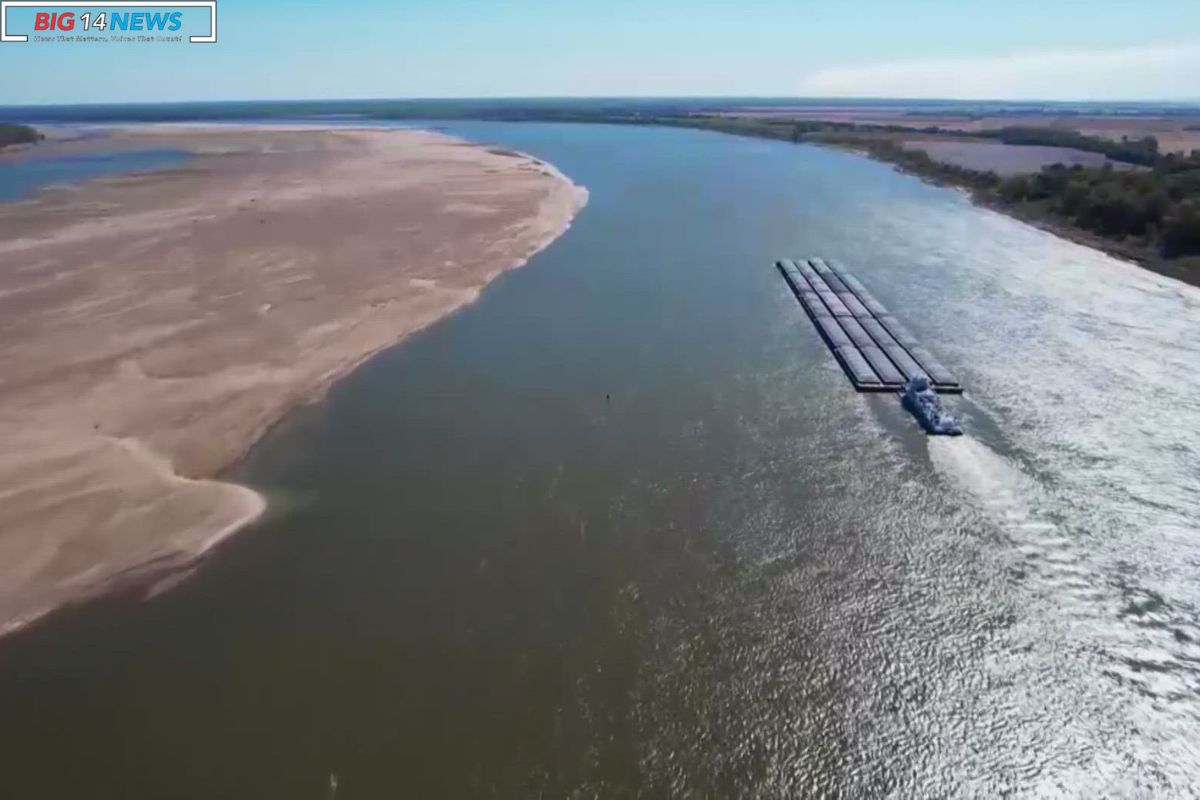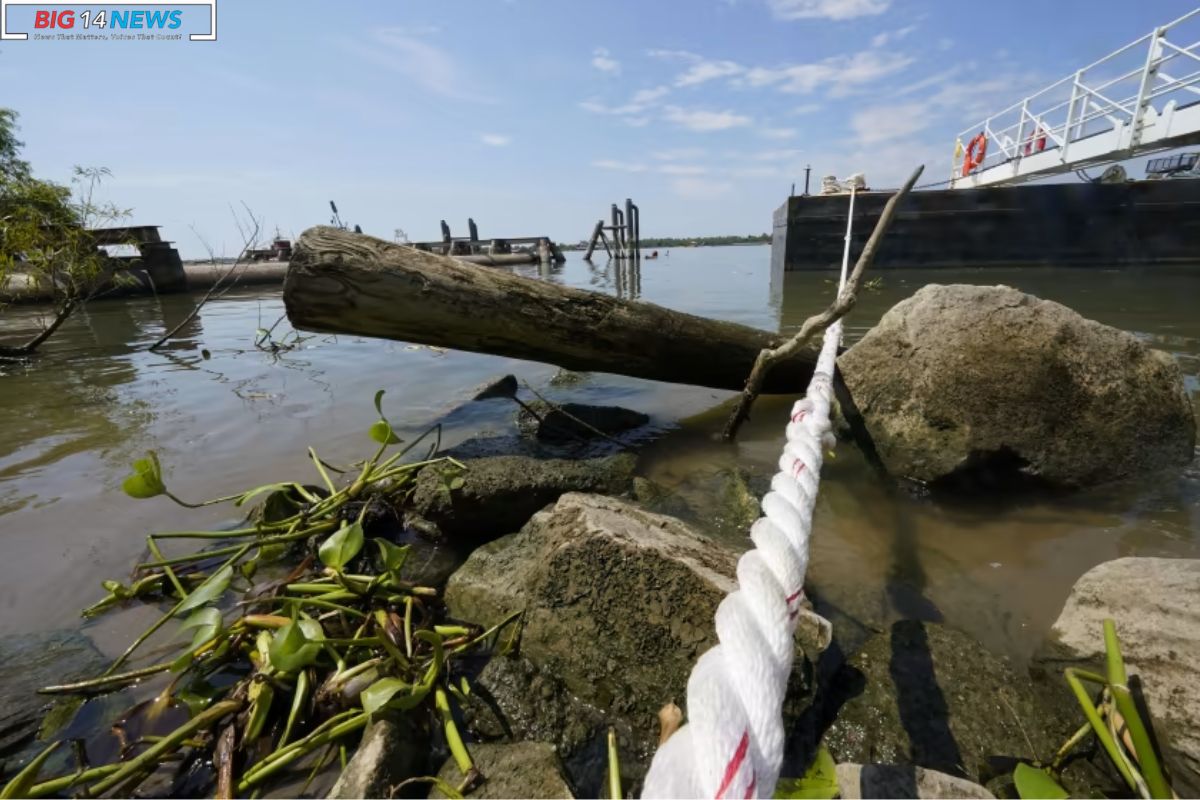Saltwater Intrusion Crisis in Louisiana: There’s a significant issue in southeast Louisiana. The tap water tastes too salty to drink. People have used bottled water for drinking and cooking for a while. That’s not good, and it’s causing many problems.
Imagine going into a store and only seeing plastic water bottles. In this Louisiana area, this is happening. People buy bottled water due to tap water being undrinkable.
Mark “Hobbo” Cognevich, from the Plaquemines Parish Council, said people are getting increasingly angry about the issue. Some claim rashes after showering. Things aren’t going well.
Why is this happening? There are several reasons, but the main one is “saltwater intrusion.” Let’s break it down.
The Mississippi River usually flows swiftly from Minnesota to the Gulf of Mexico. Sea water can’t reach far up this river due to its strength. But things changed.
There was a severe drought due to the country being hot and dry. The drought hurt the river. The river will soon reach its lowest level in a long time, per the government.
Why can’t the river push away the salty seawater? This is what’s happening. When the river’s flow is weak, it can’t return the salted water to the Gulf.
South Louisiana is struggling due to salty water. Most of their water comes from the Mississippi River. Since saltwater is entering, it’s unsafe to drink. Those with kidney disease, high blood pressure, low-sodium diet, pregnant women, and children are at higher risk.
Some places have issued water orders since June, advising against drinking tap water. It’s not just a minor problem; it could soon spread to Orleans, St. Bernard, and Jefferson parishes.
How will this issue be resolved? The government is trying to figure out what’s happening. They build underwater walls called “sills” to slow the saltwater. This has been done before.


They use boats to transport fresh water to places in need. The governor declared a state of emergency for federal assistance. This would attract more people and money, aiding in problem-solving.
But what they need most now is rain. Rain helps rivers flow and washes away ocean salt. Northern areas also require showers. Due to rain, the river grows larger and stronger.
It’s not only the water we drink that could be better. Ships and boats frequently navigate the Mississippi River, primarily for transporting food. The Port of South Louisiana ships around 60% of US grain items. Due to the drought, the river’s low water level hampers boat speed and slows down trade.
They are monitoring the impact on farms, mainly orange growers. Plants need water to grow, and saltwater harms them more than mature trees.
Ultimately, they’re trying their best to handle the situation, but everyone’s biggest wish is for rain to return things to normal.
Also Read: Vermont Sleepy Hollow Farm: A Social Media Dilemma
Our Reader’s Queries
What is the seawater intrusion in Louisiana?
Saltwater intrusion occurs when ancient oceans deposited salt across Louisiana, forming massive salt domes. Over time, these domes broke down, allowing salt to mix with the surrounding groundwater and form saltwater aquifers. This natural process has led to saltwater intrusion in the region.
What is the Louisiana water crisis?
A Rising Issue: In parts of Louisiana and other Southern areas, severe weather worsened by climate change is becoming a danger to clean drinking water. Groundwater: Unregulated depletion is depleting and harming aquifers across the country, putting millions at risk.
Is Louisiana facing a drinking water crisis caused by saltwater intrusion?
Authorities have undertaken various initiatives to combat the intrusion of saltwater into freshwater, beginning with the enlargement of an underwater sill constructed in July 2023 in the Mississippi River. The expansion of the sill by 25 feet has been in progress since late September.
Is Baton Rouge affected by the salt water?
Baton Rouge and surrounding parishes rely on the Southern Hills aquifer for their drinking water. This deep underground water source is separate from the Mississippi River and is shielded from its sporadic spikes in saltiness.

